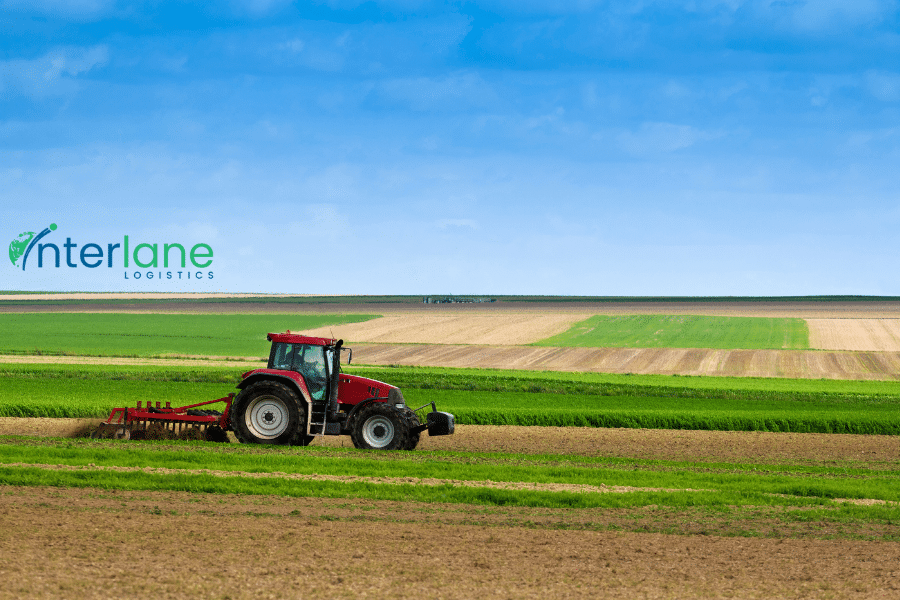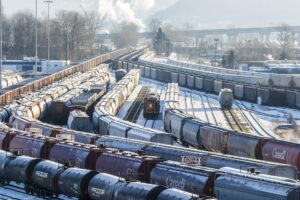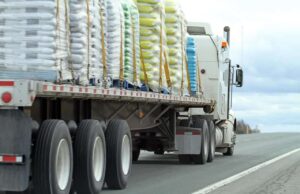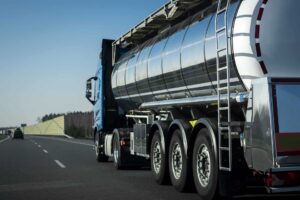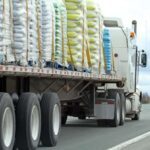Similar to other industries, the agriculture sector cannot operate in isolation. It frequently relies on the assistance of adjacent industries to enhance productivity and expand the distribution of agricultural products. Among these aspects, transportation stands out as a vital component for prosperous and abundant agriculture.
How Can Transportation Help Agriculture?
Transportation enables farmers to make greater investments, increase production, and expand their reach to international markets. Without efficient transportation, businesses cannot develop, as everything needs to be transported, sent, or carried to reach the customer. Moreover, the absence of effective transportation can lead to significant wastage of large quantities of agricultural products, resulting in a deterioration of quality. In fact, the reputation and success of farmers heavily rely on the reliability of transportation.
Both product quality and transportation quality are vital for ensuring customer satisfaction. It is important to note that agricultural products differ from industrial goods. The majority of agricultural goods are consumable, bulky, and perishable in nature. Therefore, proper packaging and transportation methods are essential to prevent damage during transit. Consequently, the quality of transportation becomes just as critical as its availability.
Some products may be cheaper to produce in certain locations, but they need to be transported from remote areas or different countries, which adds up to the final product price at stores. Keeping transportation costs low not only helps farmers generate profits but also makes agricultural products more accessible to consumers. Regardless of a bountiful harvest, farmers face concerns if their products cannot be efficiently transported abroad or to customers in other locations. It is crucial for items to reach clients in a timely manner and at a reasonable cost.
Why Is the Quality of Transport Important?
The transportation of agricultural produce is of utmost importance due to the unique characteristics of these goods, setting the quality of transport on par with its availability. Agricultural products, being bulky and perishable, require careful handling during packaging and transportation to prevent damage. The journey from harvest to market involves several stages, including harvesting, threshing, winnowing, bagging, processing, and storage.
Despite some inevitable losses throughout these stages, an efficient transport and marketing system can help maintain low unit costs and ensure a robust agricultural value chain. Affordable transport costs not only enable farmers to earn a margin but also make agricultural products accessible to consumers. Conversely, high transport costs not only affect domestic marketing but also diminish the potential for agricultural exports compared to countries with more efficient transportation. Therefore, reliable and strong urban and international demand is vital for the optimal growth of the agricultural sector.
Among the various types of transportation, road transport plays a crucial role in the movement and distribution of agricultural goods from farms to markets and urban areas. It serves as the key mode of transport, providing last-mile connectivity to consumers. Road transport forms a widespread and intricate network capable of transporting a wide range of products. It’s convenient, flexible, and readily available for the transportation of agricultural goods. However, if transport services are infrequent or lack in quality, with high prices, it becomes a disadvantage for farmers.
What Types of Trailers are Used In Agriculture
There are three distinct types of trailers commonly employed for the transportation of agricultural produce. To gain a comprehensive understanding of each transportation method, let’s delve into the specifics of these trailers and their role in efficiently moving agricultural goods.
1. Reefer
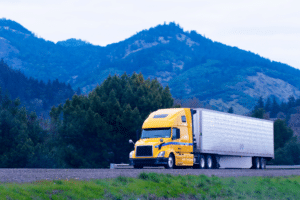
Refrigerated trucks, commonly referred to as “reefers,” are designed with temperature control and monitoring mechanisms to ensure the safety and freshness of agricultural goods. To facilitate the maintenance of cold temperatures, reefer trucks are equipped with insulated trailer boxes. These insulations prevent the cold air inside the trailer from escaping and minimize its contact with the warmer external air. Polyurethane foam is commonly used to effectively seal the trailer box and enhance insulation.
2. Flatbed

Flatbed logistics company and services stand apart from other transportation methods as they lack any form of enclosure. Instead, they are open trailers that do not shield against the elements. This characteristic makes them well-suited for transporting oversized and heavy products that would prove challenging or impractical to transport using enclosed trailers. Flatbed trailers find their ideal use in transporting agricultural equipment and goods, such as hay bales, grains, tractors, and various other items. Available in diverse sizes, these trailers play a pivotal role in keeping farms operational and facilitating the production of food items.
3. Dry Van
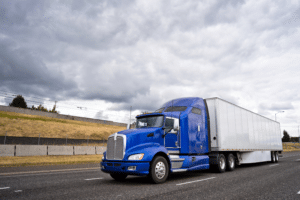
A dry van may resemble a reefer truck from the outside, but the key distinction lies within. Unlike reefer trucks, dry vans lack temperature control mechanisms. However, they offer complete enclosure, safeguarding agricultural products against weather conditions and road hazards. The versatility of dry van transport makes it the most widely used method of transportation. Due to its prevalence, dry van shipping is also cost-effective. Dry vans are suitable for transporting dry and nonperishable goods.
The Bottom Line
The transportation of agricultural products involves various intricate factors that go beyond initial impressions. Numerous variables come into play and have a direct impact on the availability of stocked grocery store shelves. Interlane is a leading Canada logistics company in the agricultural industry committed to upholding robust supply chains to ensure a continuous flow of food to the shelves and, ultimately, onto our tables.

